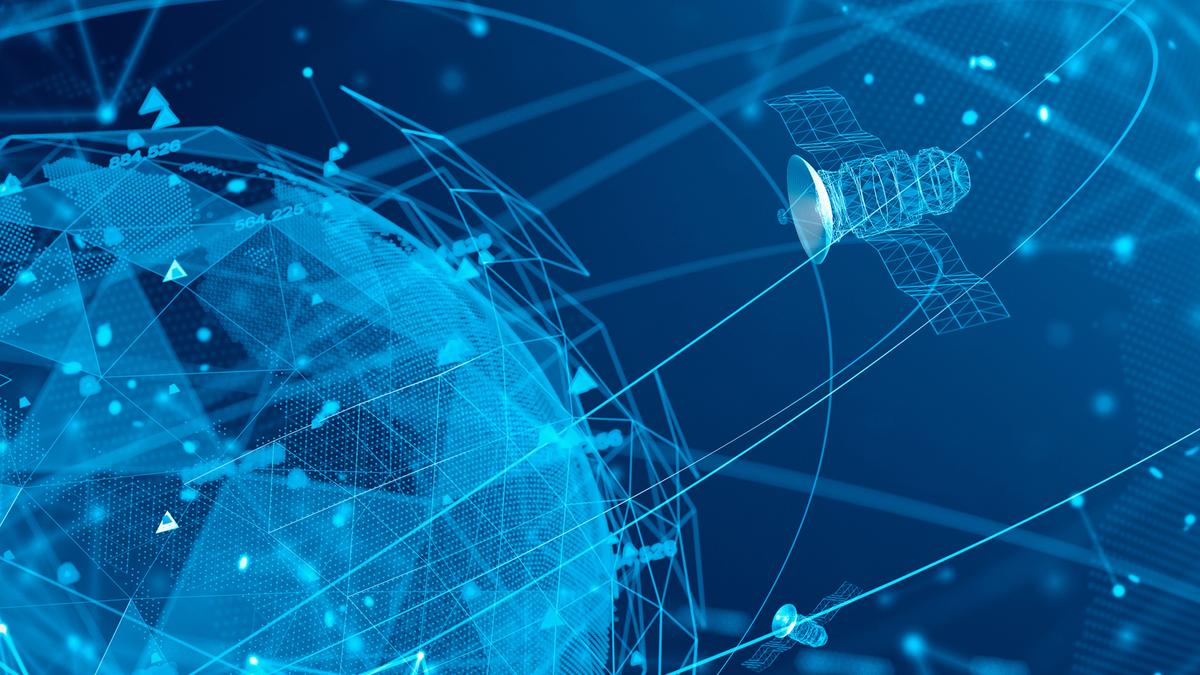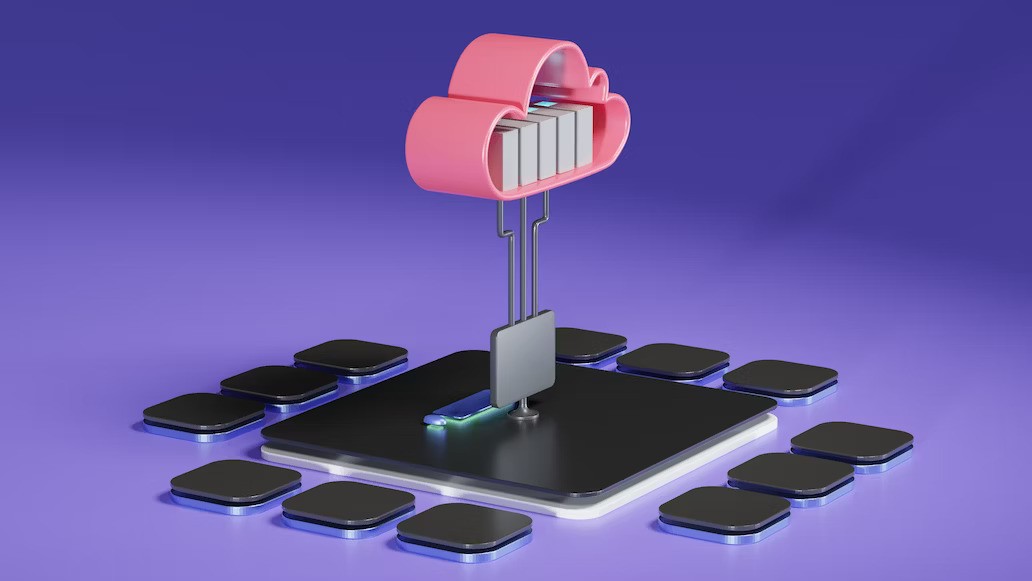India’s National Quantum Mission

- 22 Dec 2024
In News:
India is preparing to launch its first quantum satellite within 2-3 years as part of its National Quantum Mission (NQM), a significant initiative aimed at positioning India as a global leader in quantum technologies. This satellite will play a pivotal role in enhancing the security of communications, particularly in the face of the potential threat posed by quantum computers to existing cryptographic systems.
What is a Quantum Satellite?
A quantum satellite is a type of communication satellite that uses quantum physics principles to secure data transmission. Unlike conventional satellites that rely on classical encryption, quantum satellites leverage quantum mechanics to achieve unbreakable encryption through Quantum Key Distribution (QKD).
Key Features:
- Quantum Key Distribution (QKD): Ensures secure key sharing, revealing any attempts of eavesdropping.
- Security Advantage: Provides "unconditional security" by detecting any interference during the transmission process.
- Data Transmission: Unlike conventional satellites that encode data in classical bits, quantum satellites encode information in quantum states or qubits.
What is Quantum Cryptography?
Quantum cryptography is a technique that uses the laws of quantum mechanics to secure communications. The most widely used method is Quantum Key Distribution (QKD), which ensures that the keys used to encrypt and decrypt messages remain secret and unbreakable.
Key Mechanisms:
- Quantum Measurement: Any attempt to measure the quantum state (such as a photon carrying information) changes its state, alerting the sender and receiver to potential eavesdropping.
- Quantum Entanglement: When two quantum particles (photons) are entangled, a change in one will instantaneously affect the other, ensuring that the key remains secure.
Why is Quantum Satellite Important?
The advent of quantum computing threatens the cryptographic methods that secure current digital communications. Quantum computers, with their vast computational power, could potentially crack encryption codes that are currently deemed secure. Quantum satellites aim to counteract this threat by using quantum cryptography to make communications tamper-proof.
Security in the Quantum Era:
- Classical Encryption: Relies on mathematical problems that are difficult to solve without the decryption key.
- Quantum Encryption: Uses quantum properties, such as superposition and entanglement, to offer superior security.
National Quantum Mission (NQM)
The National Quantum Mission (NQM) was approved by the Union Cabinet in April 2023 with a budget of ?6,000 crore for implementation over eight years (2023-2031). The mission aims to accelerate the development and application of quantum technologies, with a focus on quantum communication, quantum computing, quantum sensing, and quantum metrology.
Key Objectives:
- Development of Quantum Computers: Building intermediate-scale quantum computers with 50-1000 qubits.
- Quantum Communication: Establishing secure, satellite-based quantum communication systems within India and internationally.
- Research and Innovation: Fostering quantum technologies and creating a self-reliant ecosystem.
India’s Advancements in Quantum Technology
India is making significant progress in quantum research and communication. The Raman Research Institute in Bengaluru has identified Hanle, Ladakh as an ideal location for quantum communication experiments due to its optimal atmospheric conditions.
The Indian Space Research Organisation (ISRO) has already demonstrated successful free-space quantum communication over short distances (300 meters). The upcoming quantum satellite will build upon this progress to create secure quantum communication networks within India and internationally.
Global Context: Micius Satellite and China’s Lead
China is a global leader in quantum communications, having launched the world’s first quantum satellite, Micius, in 2016. Micius demonstrated the feasibility of secure quantum communication by generating pairs of entangled photons. India’s quantum satellite will build on this technology to create robust, long-range quantum communication networks.
Limitations of Quantum Key Distribution (QKD)
Despite its promise, QKD faces several limitations:
- Technological Maturity: The technology is still in the experimental phase, and large-scale commercial implementation is not yet feasible.
- Authentication Issues: QKD lacks reliable methods to authenticate the transmission source, leaving it vulnerable to impersonation attacks.
- Infrastructure Costs: Establishing and maintaining QKD networks requires specialized hardware, leading to higher costs.
- Denial-of-Service Risks: Eavesdroppers can trigger the abort mechanism, leading to transmission interruptions.
- Signal Loss: Atmospheric and distance-related attenuation can degrade the quality of quantum signals.
National Quantum Mission and Sectoral Impact
The NQM aligns with India's national priorities, including Digital India, Make in India, and Start-up India. The mission’s outcomes are expected to impact various sectors, such as:
- Healthcare: Quantum computing for drug design and medical research.
- Space Exploration: Enhancing communication security for space missions.
- Banking and Financial Services: Strengthening data security and transaction integrity.
- Energy: Improving energy systems and smart grids through advanced sensing technologies.
National Quantum Mission to call for proposals to set up four tech hubs (PTI)

- 19 Jan 2024
Why is it in the News?
The government will set up a coordination cell to implement the National Quantum Mission (NQM) with a focus on establishing four technology hubs in the format of consortia of academia, research and development labs and industry.
What is the National Quantum Mission (NQM)?
- The National Quantum Mission (NQM) will assist India take a giant leap into the future of technology.
- India has entered the ranks of the select few nations actively pursuing the advancement of quantum technology by establishing this programme.
- In 2023, the government sanctioned the National Quantum Mission (NQM), spanning from 2023-24 to 2030-31, with the following key features:
- The mission aims to initiate, foster, and amplify scientific and industrial research and development in Quantum Technology (QT), establishing a dynamic and innovative ecosystem.
- Its ultimate goal is to propel quantum technology-led economic growth, foster the QT ecosystem, and position India as a leading nation in the field of Quantum Technologies & Applications.
- It willl be implemented by the Department of Science & Technology (DST) under the Ministry of Science & Technology.
Key Objectives:
- Develop intermediate-scale quantum computers with 50-1000 physical qubits across platforms like superconducting and photonic technology within eight years.
- Implement satellite-based secure quantum communications over a 2000-kilometre range within India, ensuring long-distance secure quantum communications with other countries.
- Establish inter-city quantum key distribution over 2000 km and multi-node Quantum networks with quantum memories.
- Develop highly sensitive magnetometers in atomic systems and Atomic Clocks for precision timing, communications, and navigation.
- Support the design and synthesis of quantum materials like superconductors, novel semiconductor structures, and topological materials for quantum device fabrication.
- Develop single photon sources/detectors and entangled photon sources for applications in quantum communications, sensing, and metrology.
Implementation:
- The mission involves the establishment of four Thematic Hubs (T-Hubs) in leading academic and National R&D institutes, focusing on Quantum Computing, Quantum Communication, Quantum Sensing & Metrology, and Quantum Materials & Devices.
- These hubs will concentrate on generating new knowledge through basic and applied research and promote R&D in their respective domains.
Significance:
- NQM has the potential to elevate India's Technology Development ecosystem to global competitiveness.
- It is expected to significantly benefit various sectors such as communication, health, finance, and energy, with applications ranging from drug design to space, banking, and security.
- The mission aligns with national priorities, including Digital India, Make in India, Skill India, Stand-up India, and Start-up India, and contributes to Sustainable Development Goals (SDG).
- With the launch of this mission, India will be the seventh country to have a dedicated quantum mission after the US, Austria, Finland, France, Canada and China.
What is Quantum Technology?
- The term "quantum technology" is used to describe the research and development of techniques to build supercomputers with enhanced speed, security, and efficiency in data processing above conventional computers.
- Quantum mechanics, which governs the behaviour of subatomic particles, is used to design these novel systems.
- The peculiar characteristics of subatomic particles are the key to quantum technology's capabilities in processing massive quantities of information concurrently.
